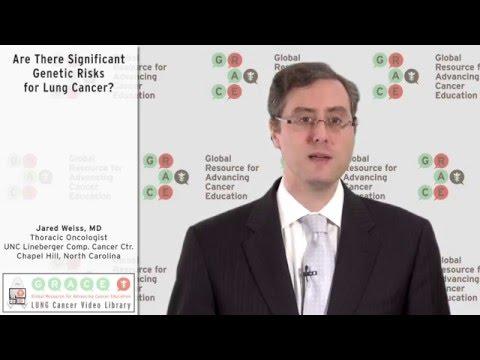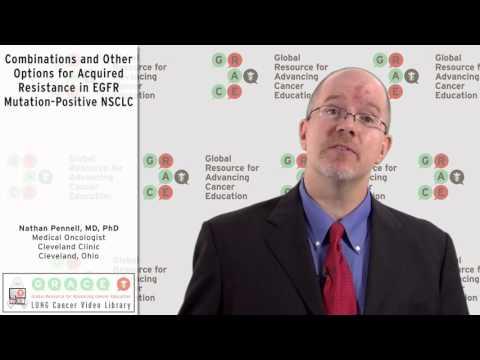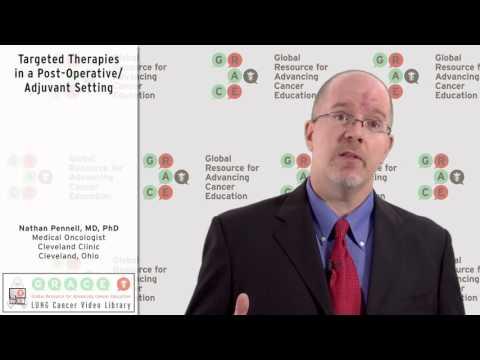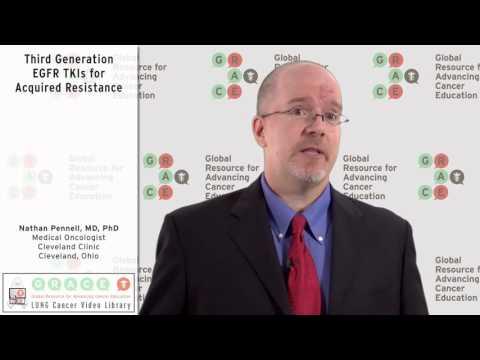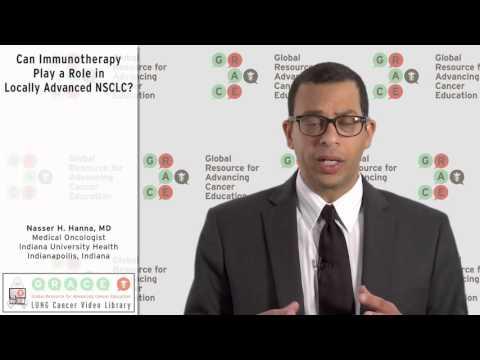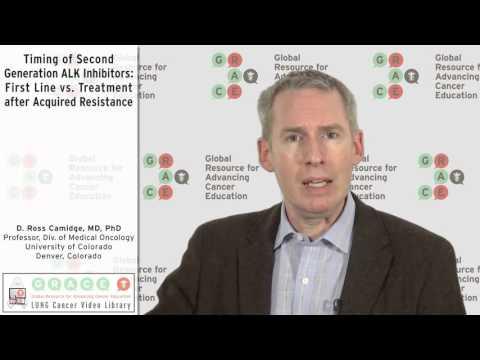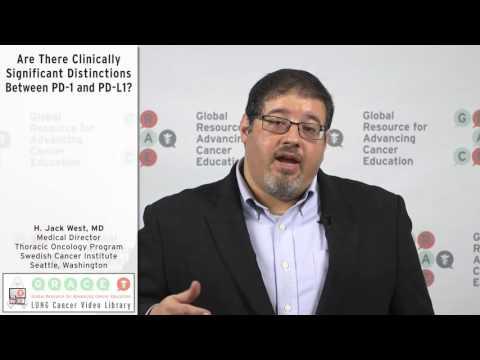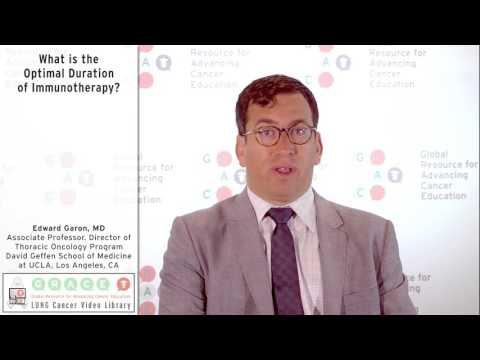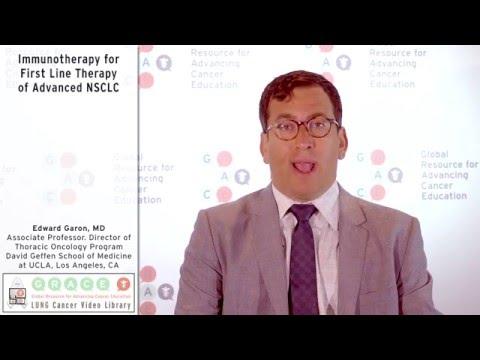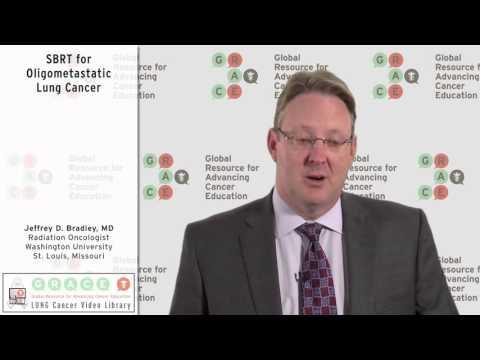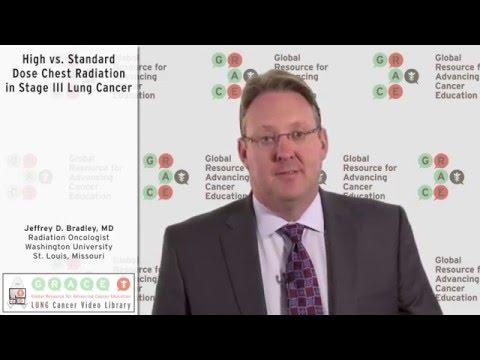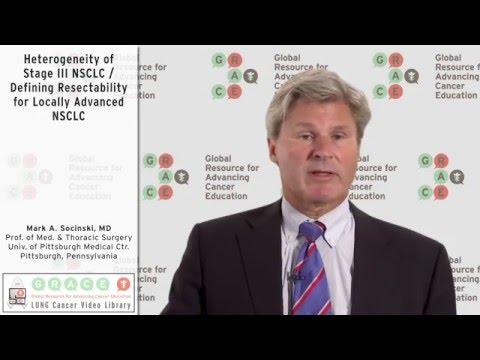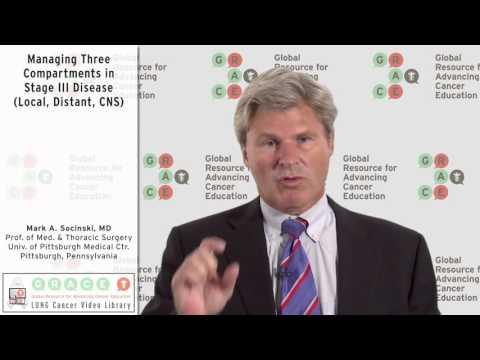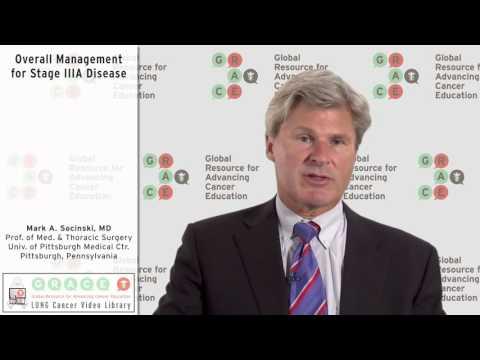Dr. Jared Weiss, UNC Lineberger Comprehensive Cancer Center, discusses the genetic risk (or lack thereof) for lung cancer.
Video Library
Search the Video Library
Video Language
Filter by Cancer Type:
Displaying Results 1 - 15 of 66
Dr. Nathan Pennell, Cleveland Clinic, describes other options for treatment of acquired resistance, including chemotherapy, ablation with SBRT and a combination of Gilotrif and Erbitux.
Please Note: New Treatments Have Emerged Since this Original Post
Dr. Nathan Pennell, Cleveland Clinic, reviews the available trial evidence for the use of targeted therapies in the post-operative/adjuvant setting.
Please Note: New Treatments Have Emerged Since this Original Post
Dr. Nathan Pennell, Cleveland Clinic, discusses the concept of acquired resistance and new agents designed to address it, including Rociletinib and Merelitinib.
Dr. Nasser Hanna, Indiana University Health, discusses the possible role of immunotherapy in locally advanced NSCLC.
Dr. David Harpole, Duke University Medical Center, describes how he assists patients with the surgical decision-making process.
Dr. Ross Camidge, University of Colorado, addresses the question of whether to use a second generation ALK inhibitor as first line therapy or only after acquired resistance to crizotinib.
Dr. Jack West, Swedish Cancer Institute, compares the mechanism of action, efficacy and toxicity of PD-1 and PD-L1 inhibitors.
UCLA Med Center's Dr. Eddie Garon discusses the open question of the optimal duration of ongoing treatment with immunotherapy for lung cancer.
Dr. Eddie Garon considers the data on immunotherapies for first line treatment of advanced NSCLC and whether we are likely to use these agents instead of or in combination with standard chemotherapy soon.
Dr. Jeffrey Bradley, Radiation Oncologist at Washington University in St. Louis, defines oligometastatic lung cancer and describes the recent trend toward the use of stereotactic body radiation therapy to treat it.
Dr. Jeffrey Bradley, Radiation Oncologist at Washington University in St. Louis, provides trial evidence showing that patients may not benefit from high dose chest radiation therapy vs. standard dose therapy.
Dr. Mark Socinski, University of Pittsburgh Medical Center, describes the different types of stage III (locally advanced) NSCLC, and states which of these types tend to be resectable.
Dr. Mark Socinski, University of Pittsburgh Medical Center, defines the three compartments in stage III (locally advanced) NSCLC, each of which must be treated.
Dr. Mark Socinski, University of Pittsburgh Medical Center, describes the primary treatment options for stage IIIA NSCLC, including chemoradiation and surgery, and discusses trial evidence for each approach.

